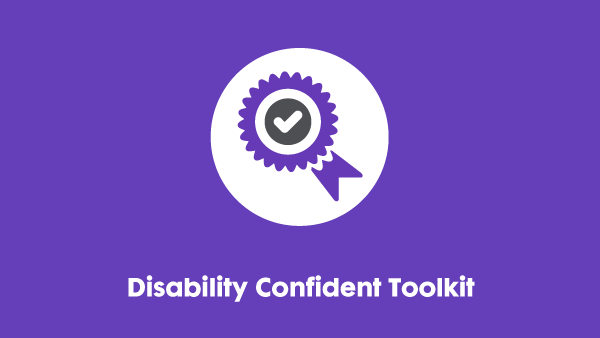Last updated: 2 April 2025
Disability Confident Level 1 – Activities
Introduction
Organisations participating in Disability Confident Level 1 commit to performing at least one activity.
These activities can help organisations:
- increase disability awareness,
- help remove the common fears and myths about disability,
- improve a disabled person’s confidence and belief in their abilities and potential,
- help others believe in the benefits of disability inclusion.
1. Work experience
Offering work experience where a disabled person works for an organisation for a temporary period to gain experience can be a useful way to assess if a person may be a good prospective employee as well as provide the person with experience for the CV.
2. Work trials
Work trials can be used as an alternative to formal interview. In work trials, an applicant is given the opportunity to show their ability (or potential ability) to do the job. It can often be a better way to assess a person’s skills and ability than a traditional interview.
3. Paid employment (permanent or fixed-term)
This activity involves recruiting disabled people into roles in the organisation, either on permanent or fixed-term contracts.
Employing disabled people benefits the person and the employer. Our resource on the benefits of a diverse workforce has more information.
4. Apprenticeships
Apprenticeships are available for many different roles, such as catering, office administration, and engineering. They can act as a gateway recruitment strategy, with many apprentices applying for jobs within organisations once they have completed their apprenticeship.
Local colleges often work with organisations to facilitate and support apprenticeship schemes in organisations.
5. Job shadowing opportunities
Job shadowing is where a person learns about a role by following a person who is already in the role. It can help individuals assess if they could potentially do the role with or without adjustments.
6. Traineeships
Some organisations offer traineeships which can help both a disabled person and the organisation offering the traineeship. This method may be preferred by some people to more formal higher education.
7. Paid internships and supported internships
This activity refers to short-term periods of work experience, usually between 1 and 4 months long.
Supported internships are intended to provide work experience to disabled people who are in education.
There may be local organisations that can help you set up a programme of internships. They will also support the employer and the intern throughout.
8. Student placements
Many colleges and universities require students to work in organisations as part of their courses.
These can be useful to organisations and students to see what they may need to work in a particular field or role. They can also be useful recruitment tools for organisations.
9. Sector-based work academy placements (SWAP)
This is a government scheme to help unemployed people over the age of 18 who are receiving benefits to apply for jobs. This includes disabled people. Jobcentre Plus administers the scheme. The placements can last up to six weeks and do not cost the host organisation.
If you require this content in a different format, contact enquiries@businessdisabilityforum.org.uk.
© This resource and the information contained therein are subject to copyright and remain the property of the Business Disability Forum. They are for reference only and must not be copied or distributed without prior permission.
